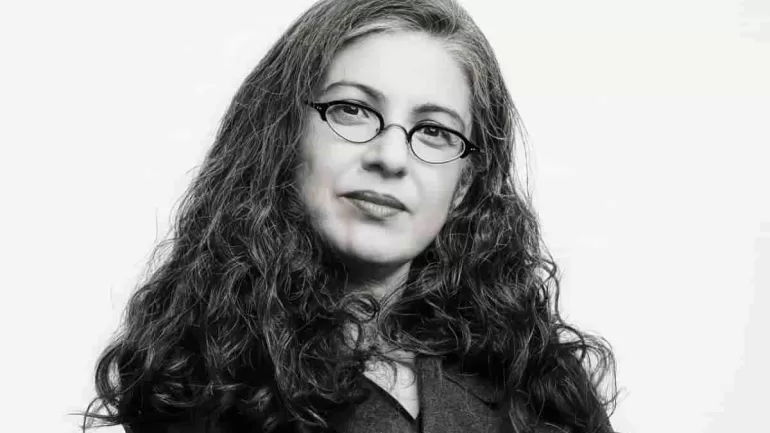ARCHITECTURE & DESIGN
Tülay Atak, Professor of Theory of Architecture at the University of Applied Arts Vienna. Photo: © Adam Elstein.
Tülay Atak’s groundbreaking work in the Theory of Architecture begins a new chapter at the Institute of Architecture in Vienna
BY ARTCENTRON NEWS STAFF
The Institute of Architecture (I oA) at the University of Applied Arts Vienna has appointed Tülay Atak as its new Professor of Theory of Architecture. This significant development underscores the Institute’s commitment to advancing architectural discourse that is both deeply rooted in theoretical inquiry and responsive to contemporary global challenges.
With an outstanding academic and professional trajectory, Tülay Atak brings a rich interdisciplinary background in architectural theory, environmental history, and global urban studies, positioning her as a transformative voice within the architectural academy.
A Visionary in Architecture, Theory, and Environmental History
Tülay Atak is an accomplished architect, theorist, and historian whose work has consistently sought to unravel the intricate relationships between architecture, politics, environment, and cultural transformation. Her appointment reflects the I oA’s intent to cultivate a forward-thinking, research-driven curriculum that centers critical theory in architectural education.
Atak received her professional degree in architecture from Middle East Technical University (METU) in Ankara, a leading institution recognized for fostering analytical and context-aware architectural thought. Her academic journey continued at the University of California, Los Angeles (UCLA), where she pursued a PhD in Architecture. Her dissertation, entitled Byzantine Modern: Displacements of Modernism in Istanbul, traces the cultural and historical entanglements of modern architecture in Turkey’s largest metropolis, revealing the hybridization of styles and ideologies through a rigorous historical lens.
An International Portfolio of Research and Collaboration
Tülay Atak’s research profile is distinguished by international reach and interdisciplinary scope. Beyond her doctoral work, she has participated in collaborative research projects in India and Switzerland. These collaborations reflect her deep engagement with transcultural architectural practices. Her work with non-profit organizations includes the Cape Cod Modern House Trust and Grace Farms. This approach signals her commitment to architectural preservation, sustainability, and community-centered design.
Her recent co-edited volume is the Pedagogical Experiments in Architecture for a Changing Climate (Routledge). The book stands as a critical intervention in architectural education. It emphasizes how climate-responsive pedagogies can redefine the design studio and reshape the discipline for a rapidly transforming planet.
Atak’s intellectual contributions have been widely published in leading architectural journals and books, shaping contemporary theoretical discourse across multiple fronts. Her essays and critical writings appear in numerous media. They include Architectural Theory Review, OASE, Future Anterior, Architektur Aktuell, and Architect’s Newspaper
She has also contributed to influential edited volumes, including Byzantium / Modernism and Fragile City. Her writings demonstrate her analytical prowess in bridging architectural history with modern urban transformations.
Curatorial Leadership: Energy and Architecture
In addition to writing and research, Atak has contributed to curatorial practices that explore the intersection of architecture, energy, and perception. Her curated exhibition, “Energy at the Threshold of the Visible World,” held at the Angewandte Innovation Laboratory (AIL) in Vienna, investigated how energy systems intersect with architectural visibility and public awareness. The exhibition stands as an exemplar of theory-driven curatorial practice that speaks to pressing ecological and technological themes.
Tülay Atak is not only a scholar but also a dedicated educator with a strong pedagogical mission. Over the years, she has taught across a range of elite academic institutions including:
- SCI-Arc (Southern California Institute of Architecture)
- Cornell University
- RISD (Rhode Island School of Design)
- Cooper Union
- Rensselaer Polytechnic Institute (RPI)
- Pratt Institute
- Cal Poly Pomona
Her teaching philosophy centers on bridging the historical, theoretical, and design dimensions of architectural education. Her seminars, studios, and lecture courses equip students with the analytical tools needed to examine the social, political, and cultural underpinnings of the built environment while inspiring them to imagine radical alternatives to dominant practices.
The Role of the Theory of Architectural in Today’s Design Landscape
In reflecting on her new role, Atak articulates a compelling vision for the future of architectural theory at the Institute:
“As architects and academics, we have to think about the ‘worldliness’ of our profession and discipline, or how architectural ideas transform and adapt to different contexts and events. Architectural theory can articulate the links between architecture’s disciplinary knowledge and contemporary questions.”
Her statement underscores a foundational belief: architectural theory is not merely reflective, but transformative. It operates as a bridge between what is present and what can be imagined. More importantly, it is a framework through which architects can interpret historical patterns and project visionary futures.
Sam Jacob, Dean of the Institute, expressed his enthusiasm for Atak’s appointment, stating:
“We would like to welcome Tülay more officially now to the I oA after a number of years of working together. We look forward to finding ways to oscillate, blur, antagonise and otherwise collaborate between design and theory to forge new directions and possibilities for our own community and beyond.”
This appointment is an important moment for the University of Applied Arts Vienna. The institution has long positioned itself at the cutting edge of design innovation, theory, and experimentation. The collaboration between Jacob and Atak promises to dissolve traditional boundaries between disciplines, encouraging cross-pollination of ideas and methods that can redefine architectural education in the 21st century.
Theory of Architecture: A Catalyst for Change
At a time when architectural practice faces unprecedented global challenges—from climate change and urban inequality to technological disruption and geopolitical instability—the role of theory in design education has never been more urgent. Tülay Atak’s appointment signals a renewed focus on using theory to:
- Contextualize architectural form within socio-political realities
- Foster sustainable and inclusive design methodologies
- Cultivate critical thinking across historical and futuristic spectrums
- Empower the next generation of architects to reimagine the discipline’s boundaries
Through her scholarship, teaching, and public engagement, Atak is poised to guide the Institute of Architecture into a new intellectual era. An era where academic rigor and real-world relevance converge to produce innovative architectural solutions for an increasingly complex world.
